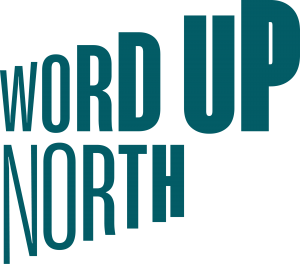
Mahsuda Snaith
1. Your greatest teachers are other books
The one thing I love about writing is you don’t have to pay lots of money to get better at it (although people try). Get a book from the library, read it, rate it then study it like you’re cramming for a last minute exam. What makes it work? What doesn’t? What did you love? What did you despise? Write these things down and think about how they apply to your writing. And don’t forget the plethora of books about creative writing out there – many of which you can find in the library.
2. Your greatest resource is time
Not lots of time, just time. When I was younger and the summer holidays rolled around I would have days and days to write and barely do anything. Now that I work part-time, write part-time and take care of a toddler I do not have days I have hours. But boy, do I make those hours count! Whether it’s writing the next novel, working on creative writing workshops, editing an anthology or applying for a commission it’s only time that helps me get the job done. Of course, the older I’ve got the more efficient I’ve become with my writing and the more resources I have to fall back on when I’m struggling. But prioritising writing time is still invaluable, even if that means booking a week off work and barricading myself in the study.
3. Get feedback
There comes a point when you have to do the scary thing and release your work into the world.For many people, the first time they do this is when they send to publishers or competitions. This is a bit like leaving the dress rehearsal for opening night. Make your work the best it can be beforeyou send it out. You do this by getting as much feedback as possible. You don’t need to agree about all the feedback but you do need to hear it. Send to friends you trust the opinion of (and learn if you trust their opinion by talking to them about books), post your work online, join a writer’s group or, if there isn’t one to join, create a writers group. There are also free read schemes and mentoring programmes. Apply for everything you can.
4. Know your story
I was talking at an event where writers had been shortlisted for a national mentoring programme. These writers had beat hundreds of applicants so were outstanding at what they did, yet when I asked them about their work they instantly grew shy and said ‘well, it’s not really anything yet.’With a room full of eager agents and publishers this seemed like an opportunity massively missed. Know your story. Have a punchy, attention grabbing line about it and do not be shy in expressing it. If someone is asking you about your work, presume that they are interested. If their eyes glaze over, take that as feedback and work on making that description better.
5. Persistence pays
I’ve been writing with the aim to get published since I was eight. Nearly thirty years later I got published. I don’t say this to make you despair, if my story shows anything it shows the power of persistence. I sent my short stories and novels out, I got rejected. I brushed them up, learnt something new about the trade and sent them out again. I got rejected. I repeated this process several times each time gathering new lessons like the ones I’ve described above. I got stronger at my craft and stronger as a writer and, eventually, I got some wins (thank you SI Leeds Prize). Remember; it’s not about how you fall, it’s not even about how you get back up, sometimes it’s just about getting back up. Get back up. Get back to writing. Make your work so damn brilliant that nobody will want to pass it by.
But also, and I cannot emphasise this enough, enjoy yourself. My fingers and toes are crossed for you.
























